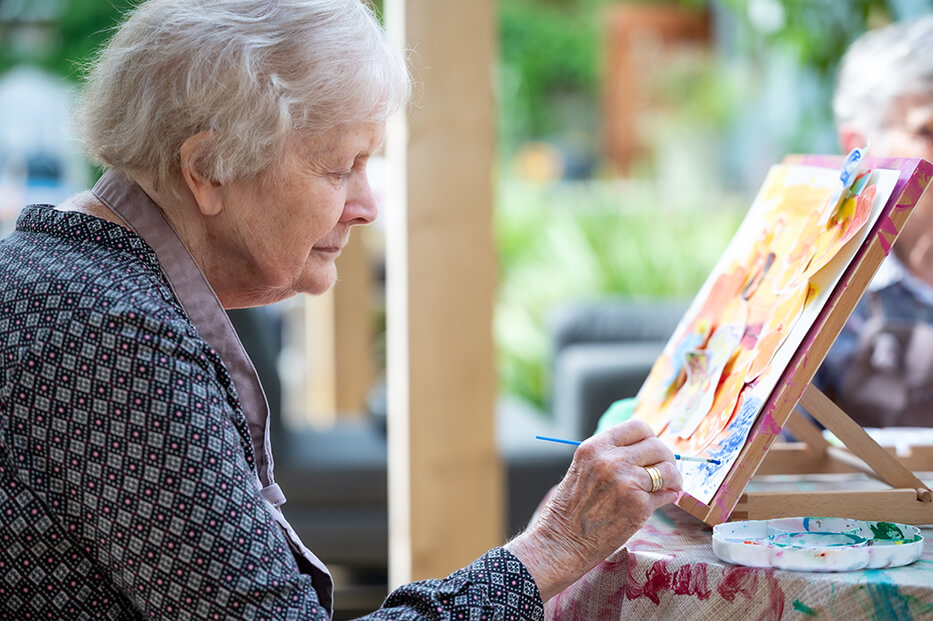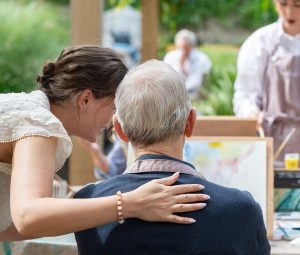A dementia diagnosis brings with it many questions, one of the most pressing being how quickly the condition will advance. The reality is that dementia progression varies from person to person, shaped by the type of dementia, overall health, lifestyle and level of support. At Loveday, we believe in empowering families and carers with knowledge, compassion and support through every stage of this journey.
Dementia progress: a timeline
Understanding the dementia progression timeline helps families prepare for the changes their loved ones may face. While every individual’s experience is unique, dementia generally follows a recognisable path over several years. On average, a person may live with dementia for eight to ten years after diagnosis, though some live longer with a slow progression and others progress more rapidly.
Typically, dementia progresses through early, moderate and late stages. However, the time spent in each stage can vary significantly. Some may experience rapid cognitive changes within a couple of years, while others may remain stable for longer periods before noticeable decline occurs.
Rate of memory loss
The rate of memory loss can be influenced by the type of dementia, the person’s environment and their general health. For example, Alzheimer’s disease, the most common form of dementia, tends to have a gradual onset and slow progression, while other forms like vascular dementia may result in a steeper decline.
In the early stages, memory problems are often subtle, such as misplacing items or forgetting names. As dementia advances, the rate of memory loss accelerates and individuals may forget significant life events, loved ones or even their own identity. However, meaningful engagement, personalised care and a nurturing environment, as offered at Loveday residences, can help improve quality of life at every stage of the journey.
Stages of dementia- UK
The stages of dementia typically follow a structured model that includes:
- Early-stage dementia- Symptoms are mild and may include forgetfulness, difficulty with problem-solving or changes in mood. Many individuals remain independent with minimal support required.
- Moderate-stage dementia- Memory loss becomes more noticeable, communication challenges arise and day-to-day tasks require more assistance.
- Late-stage dementia- Individuals may require full-time care and experience extreme physical and cognitive changes.
At Loveday, our expert team is highly trained to recognise the nuanced transitions between these stages and adjust care plans accordingly. Our personalised approach ensures each Member continues to live an enriched life with purpose and joy.
Early vs advanced dementia
Recognising the difference between early vs advanced dementia is vital for planning care. In the early stages, a person may still drive, manage their finances or live independently, although they may require prompts or reminders. Emotional responses such as anxiety or depression are also more common in this stage, as individuals begin to understand the impact of their diagnosis.
In contrast, advanced dementia often means a person can no longer communicate their needs effectively, becomes more physically frail and may lose mobility. They will require support with all activities of daily living, from bathing and dressing to eating and comfort care. The transition between early and advanced stages can be gradual or abrupt, depending on the individual and the type of dementia.
Mild vs severe dementia
The contrast between mild vs severe dementia lies in both cognitive and physical capabilities. Mild dementia is characterised by forgetfulness, occasional confusion and a decline in executive function, but individuals may still engage socially and maintain a level of independence.
Severe dementia marks a profound loss of function. Individuals may no longer recognise familiar faces, lose the ability to speak or respond to their environment and may become completely dependent on others. At Loveday, we offer advanced care solutions for those living with severe dementia, ensuring their comfort, dignity and holistic wellbeing are always prioritised.
Prognosis for people living with dementia
The prognosis for individuals living with dementia varies widely and depends on multiple factors, including the age at diagnosis, type of dementia and coexisting health conditions. While dementia is a progressive and life-limiting condition, early diagnosis and a proactive care plan can significantly enhance quality of life.
People living with Alzheimer’s disease may live an average of eight to twelve years post-diagnosis, while those with Lewy body or frontotemporal dementia may experience faster or less predictable progression. Vascular dementia often follows a stroke or a series of small strokes, which can result in a more sudden decline.
Our team at Loveday works closely with families, GPs and specialist medical teams to provide the most informed care possible.
Cognitive decline speed
The cognitive decline speed in dementia is not linear. Some individuals experience plateaus where symptoms remain unchanged for months, even years, followed by periods of more rapid deterioration. Factors influencing the cognitive decline speed include genetics, cardiovascular health, social engagement, physical activity and access to specialist care.
At Loveday, we promote a lifestyle that encourages cognitive stimulation, creative expression and sensory engagement, all known to help slow decline. Tailored programmes and experiences including art therapy, music sessions and memory-based activities are part of our daily rhythm, helping to support each Member’s abilities for as long as possible.
Late-stage dementia symptoms
Late-stage dementia symptoms can be challenging both emotionally and physically. These may include:
- Severe memory loss
- Difficulty swallowing
- Limited or no verbal communication
- Increased vulnerability to infections
- Incontinence
- Significant weight loss or reduced appetite
Despite these symptoms, joy can still be experienced every day and our team work to ensure that each Member is receiving an enriched life.
At Loveday, we specialise in end-of-life dementia care, offering approaches that honour the individuality and humanity of every Member. Our teams are trained to provide palliative and hospice-level support, ensuring Members are never alone and always surrounded by warmth, kindness and familiar routines.
Life expectancy with dementia
Life expectancy with dementia is influenced by the type and stage of the condition at diagnosis, as well as general health and quality of care. On average, people live between four to ten years after diagnosis, but some live much longer, especially with comprehensive support and lifestyle interventions.
Importantly, life expectancy with dementia should not be viewed solely in terms of years, but also in terms of life lived. At Loveday, we focus on making each moment meaningful. From beautiful surroundings and exceptional nutrition to rich companionship and dedicated care, our goal is to enhance every chapter of our Members’ lives.
Dementia symptom development
The course of dementia symptom development can be unpredictable. Early signs may include subtle changes in memory, personality or decision-making. Over time, symptoms develop to affect communication, movement and awareness of surroundings.
Understanding how dementia symptom development unfolds helps families prepare for the future and make informed decisions. At Loveday, we support this journey with ongoing assessments, open dialogue with families and a care team that anticipates changing needs.
While the question “How quickly does dementia progress?” does not have a definitive answer, what is certain is that every individual’s journey is deeply personal. Progression can be slow or swift, but compassionate, tailored care makes a world of difference.
At Loveday, we are proud to offer a place where Members can live with purpose, connection and exceptional support, no matter where they are on their dementia journey. From early signs to advanced stages, our teams are here to provide not only care, but comfort, hope and a sense of belonging.
Luminare at Loveday – Luminare at Loveday reflects our truly personalised approach to dementia care, inspired by the Latin origin meaning “to shine” or “to bring light.” It represents our belief that every person holds an enduring light, worthy of dignity, respect and a life filled with meaning. At Loveday, Luminare is not simply a word, it is a guiding principle that shapes how we deliver exceptional care, create meaningful experiences and honour the individuality of each Member. Through this philosophy, we help every person continue to shine in their own way, supported by warmth, purpose and genuine connection.
If you would like to learn more about our approach to dementia care or arrange a visit to one of our residences, please connect with our expert team.




